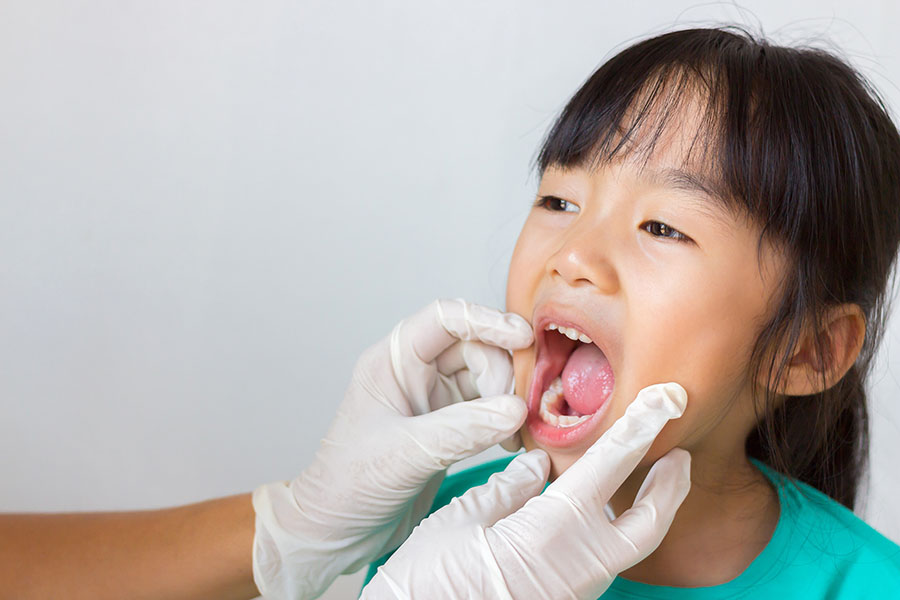
Every cell in the human body is comprised of 23 pairs of chromosomes with one chromosome in the pair received from each parent. Each chromosome, in turn, contains thousands of DNA gene sequences, some of which are active or expressed, and others that are dormant.
Factors like time, the environment, and the type of cell containing the chromosome (tooth, brain, kidney, etc.), establish if the gene will be expressed or not. The control of gene expression is important for the progress, development, and function of an organism.
Your parents may have given you more than just your eye color or your sense of humor. Unfortunately for some, you might have also gotten an increased risk for dental problems as well.
Yes, you read that right – even dental problems can run in the family. And it’s not really just learning bad habits from your family or passed on oral bacteria by sharing drinks. Many oral health conditions develop from a genetic basis. This means that you may be at greater risk for developing certain conditions, in spite of your good oral hygiene habits.
To get a better picture of your risks, ask your relatives if there is a history of any of these conditions:
Periodontal (gum) disease
Roughly 30% of the population may be genetically predisposed to gum disease. Described by irritated and swollen gums, it is a common problem that is linked to decay and, if it is left untreated, it will inevitably result in tooth and bone loss.
Early diagnosis and treatment can make a difference in protecting your gums and teeth. And if gum disease is a problem your many of your family members have struggled with, make sure to inform your dentist.
Tooth decay
Have you noticed that you tend to have cavities? You might be able to blame your ancestors. Certain variations of the gene beta-defensin 1 (called DEFB1) are connected to an increased risk of cavities in permanent (adult) teeth.
If your children are at high risk for cavities, discuss sealants and fluoride treatments with their dentist. Adults that have a higher risk of tooth decay might benefit from prescription toothpaste or mouth rinses. Of course, it’s important to have regular visits to the dentist for cleanings and exams. If left untreated, tooth decay can worsen gum disease and ultimately cause tooth loss.
Oral cancer
This disease is deadly and is responsible for the deaths of thousands of Americans every year. Although lifestyle choices, like tobacco and alcohol use, are the top risk factors for oral cancer, genetics can also be a minor cause. People that have certain genetic markers have been found to be more prone to developing the disease.
You can lower your risk by quitting tobacco, drinking less alcohol, and eating a well-balanced diet.
Crooked teeth
If you need braces, it’s more than like that you’re not the only one in your family. Genetics plays a huge role in the size of your jaw – which means genetics also play a role in causing crowding, gaps, overbites, and underbites.
If crooked teeth are a common problem in your family, don’t hesitate in reaching out to an orthodontist for your children. Early orthodontic treatment can be very beneficial for many young patients. Since they’re still growing, it allows their developing bones and teeth to grow in properly. This can prevent other more serious problems from developing down the road.
Cleft lip (or cleft palate)
This is a common birth defect that occurs when the sides of the lip and roof of the mouth are not fused together properly. Genetics can be a factor, especially since babies of Asian, Latino, and Native American descent have a high chance of being born with a cleft. Children whose parents themselves had cleft lip or palate are at risk of being born with one as well.
What can you do?
While genetic testing may be able to potentially help improve predictions of future oral health problem, your dentist already used the tools to help you right now, during an exam. From x-rays to probing measurements, these are the best current ways for us to know where we are in terms of our current oral health status. It can also help with what may lie ahead in the future. The best thing you can do is to have an active role in preventing dental disease and keep your mouth healthy. Schedule an appointment today with Foothill Dental Care in Livermore to get started on your journey to a healthy mouth.
